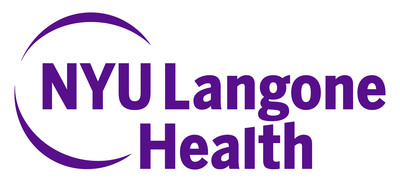NYU Langone Health, as the Clinical Science Core (CSC) for the National Institutes of Health’s RECOVER Initiative, has, since the announcement of the beginning of its operations on June 10, convened more than 100 researchers from 35 institutions as well as patients to finalize the main study protocols for the adult, pediatric, and autopsy patient groups (cohorts).
|
NEW YORK, Sept. 15, 2021 /PRNewswire/ -- NYU Langone Health, as the Clinical Science Core (CSC) for the National Institutes of Health’s RECOVER Initiative, has, since the announcement of the beginning of its operations on June 10, convened more than 100 researchers from 35 institutions as well as patients to finalize the main study protocols for the adult, pediatric, and autopsy patient groups (cohorts). These protocols will now shape the research in the massive effort to better understand the long-term impact of COVID-19 on patients and the US population, and to develop new approaches to diagnosis and treatment. Congress provided $1.15 billion in funding over four years for the National Institutes of Health (NIH) to support research into the prolonged health consequences of infection with the pandemic virus, SARS-CoV-2, in December of 2020. As the CSC for the NIH grant, NYU Langone is charged with integrating the research activities of clinical sites around the country. The CSC is now in the process of making sub-awards to many of the research teams that helped to develop the protocols so they can start enrollment into the studies. As of August 25, more than 39 million Americans had been infected with COVID-19, resulting in 648,000 deaths. For those that recovered from the initial illness, many continue to experience symptoms—including fatigue, shortness of breath, "brain fog," sleep disorders, fevers, gastrointestinal symptoms, abnormal blood clotting, loss of taste or smell, anxiety, and depression. The condition is referred to as "post-acute sequelae of SARS-CoV-2" (PASC) or as "Long COVID." "The goal of the newly funded RECOVER studies, in adults, children and in pregnant women, is to fully understand the long-term consequences of COVID-19 and the pace and extent of recovery over time," says Stuart D. Katz, MD, director of NYU Langone's heart failure program and principal investigator for the RECOVER CSC. "We recognize the need to urgently begin nationwide enrollment for collection of the information needed to better understand and improve treatment for long COVID-19." A central part of the RECOVER Initiative will be the creation of the SARS-CoV-2 Recovery Cohort, comprising multiple patient groups to be followed over time to track the long-term effects of infection in a diverse groups of people. The RECOVER initiative is anticipated to enroll tens of thousands of patients with SARS-CoV-2 infection from all 50 states, including adults, children and their caregivers, and pregnant women and their newborn infants. The study will also seek to enroll participants without SARS-CoV-2 infection to serve as a comparison group. As of July 9, the NYU Langone CAS-led team finished the design of the main protocols. Enrolled patients will be observed for clinical signs and symptoms of PASC after acute COVID-19, and will be assessed for risk factors that may predict the severity and progression of their condition. Recruitment will be monitored to ensure that the people enrolled in the RECOVER study population match the diversity of the US population with COVID-19. The study team expects to use the information collected from questionnaires, laboratory tests, and other specialized testing to define subtypes of PASC patients that will help clinicians in the future to tailor treatments for individual patients. The study will also evaluate the effect of pandemic-related stressors on long-term symptoms to better understand both the direct and indirect effects of the SARS-CoV-2 virus. Pediatric Study An important aspect of the RECOVER Initiative is the development of the pediatric main protocol for study of Long COVID in children. The pediatric study will enroll up to 20,000 "dyads," in which the impact of SARS-CoV-2 is tracked for both children and their parents or caregivers. PASC is less well studied in children than in adults, because nearly half of the initial infections with SARS-CoV-2 may be without symptoms. "Prospective, longitudinal studies in the pediatric population are urgently needed to finally define the prevalence, risks, and etiology of the disease in children, and to give the field opportunities for better prevention and treatment," says Katz. Thus, the pediatric study is designed to characterize the clinical course of Long COVID symptoms in children, adolescents and young adults less than 25 years of age with previous SARS-CoV-2 infections with and without a history of Long COVID, along with infants born in the context of maternal SARS-CoV-2 infection. Designed to follow children over time, the long-term (longitudinal) design of the pediatric study will be especially important, because the impact of SARS-CoV-2 infection on child development may be slow to appear in children, potentially only becoming clear as they mature. The CSC at NYU Langone is led by an interdisciplinary principal investigator team composed of senior faculty, including Dr. Katz; Leora Horwitz, MD, director of the Center for Healthcare Innovation and Delivery Science (co-principal investigator); and Andrea B. Troxel, ScD, director of the Division of Biostatistics (co-principal investigator) in the Department of Population Health. Contact:
SOURCE NYU Langone Health |





